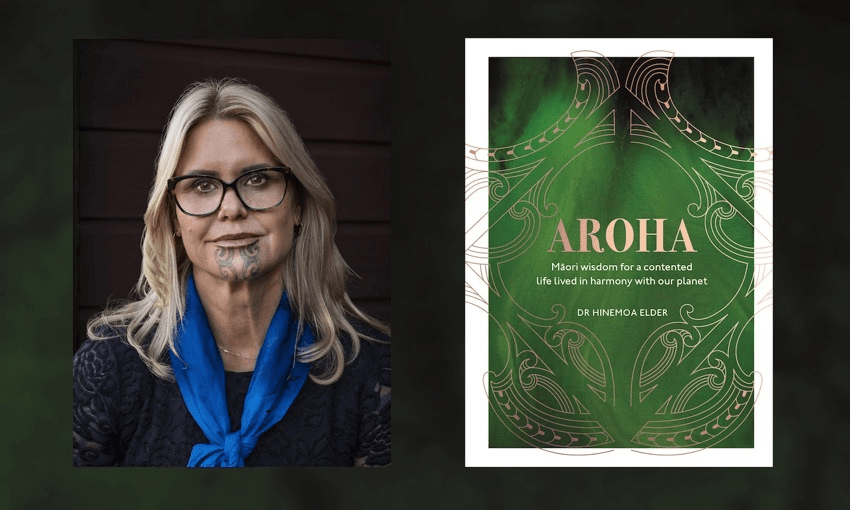The only published and available best-selling indie book chart in New Zealand is the top 10 sales list recorded every week at Unity Books’ stores in High St, Auckland, and Willis St, Wellington.
AUCKLAND
1 Aroha: Māori Wisdom for a Contented Life Lived in Harmony with our Planet by Hinemoa Elder (Penguin Random House, $30)
“He hono tāngata e kore e motu; kā pā he taura waka, e motu.
Unlike a canoe rope, a human bond cannot be severed.
You know that feeling when you just click with someone? When someone really gets you? Something about the eye contact. Something about the natural ease of interaction. It is the same feeling as a relaxing, long exhale of breath. This is precious. These are the signs that something very special is happening.”
2 Ottolenghi: Flavour by Yotam Ottolenghi & Ixta Belfrage (Ebury Press, $60)
Review incoming from Sam Brooks, who last week successfully made scrambled eggs for the first time.
3 Troy: The Siege of Troy Retold by Stephen Fry (Michael Joseph, $37)
Be advised that there is also an audiobook.
4 Wow by Bill Manhire (VUP, $25)
Longlisted (obvs) for the Ockham New Zealand Book Awards. Read our poetry editor Chris Tse’s take on the poetry picks here.
5 Where the Crawdads Sing by Delia Owens (Little, Brown Books, $25)
The book to read if you’re struggling to read. Like if last year shot your attention span to pieces, say.
6 Conversations with Friends by Sally Rooney (Faber & Faber, $23)
Sally Rooney Sally Rooney Sally Rooney
7 Shuggie Bain by Douglas Stewart (Picador, $38)
Winner of the 2020 Booker Prize.
8 The Resilience Project: Finding Happiness Through Gratitude, Empathy and Mindfulness by Hugh Van Cuylenburg (Ebury Press, $40)
Might we also recommend the forthcoming Tranquillity and Ruin by Spinoff favourite Danyl McLauchlan. It’s a book of essays about basically this same stuff except it’s brainy and beautiful. Includes a remarkable section unpicking sleep and why we do it. Out 11 Feb, via Victoria University Press.
9 Before the Coffee Gets Cold: Tales from the Cafe by Toshikazu Kawaguchi (Picador, $20)
What is happening will this cursed book never stop.
10 The Side Eye 2020 by Toby Morris (The Spinoff, $20)
Oh hey this one looks pretty cool eh?
WELLINGTON
1 Aroha: Māori Wisdom for a Contented Life Lived in Harmony with our Planet by Hinemoa Elder (Penguin Random House, $30)
2 Imagining Decolonisation by Rebecca Kiddle, Bianca Elkington, Moana Jackson, Ocean Ripeka Mercier, Mike Ross, Jennie Smeaton and Amanda Thomas (Bridget Williams Books, $15)
Beat the Booker this week, in the charts consistently for the last horrendous year, $15, do get amongst.
3 Shuggie Bain by Douglas Stewart (Macmillan Hardback $42; Picador Paperback $38)
4 Invisible Women: Data Bias in a World Designed for Men by Caroline Criado Perez (Vintage, $24)
“One of the most important things to say about the gender data gap is that it is not generally malicious, or even deliberate. Quite the opposite. It is simply the product of a way of thinking that has been around for millennia and is therefore a kind of not thinking. A double not thinking, even: men go without saying, and women don’t get said at all. Because when we say human, on the whole, we mean man.”
5 Māori Philosophy: Indigenous Thinking From Aotearoa by Georgina Stewart (Bloomsbury, $39)
A primer.
6 Seven Kinds of People You Find in Bookshops by Shaun Bythell (Profile Books, $17)
See also our smash hit essay, Confessions of a Jaded NZ Bookseller.
7 Māori Made Easy: For Everyday Learners of the Māori Language by Scotty Morrison (Penguin, $38)
Morrison also made a series of videos to support the lessons in this pukapuka and its sequel.
8 Azadi: Freedom. Facism. Fiction. by Arundhati Roy (Hamish Hamilton, $18)
Essays.
9 Ottolenghi: Flavour by Yotam Ottolenghi & Ixta Belfrage (Ebury Press, $60)
10 The Treaty of Waitangi / Te Tiriti o Waitangi: An Illustrated History by Claudia Orange (Bridget Williams Books, $50)
From the preface:
“In writing about Te Tiriti o Waitangi / Treaty of Waitangi for over thirty years, I have been driven by the hope that knowledge is influential in building New Zealanders’ understanding of our present, and by the vision that informed commitment is needed in taking next steps for our future.”



